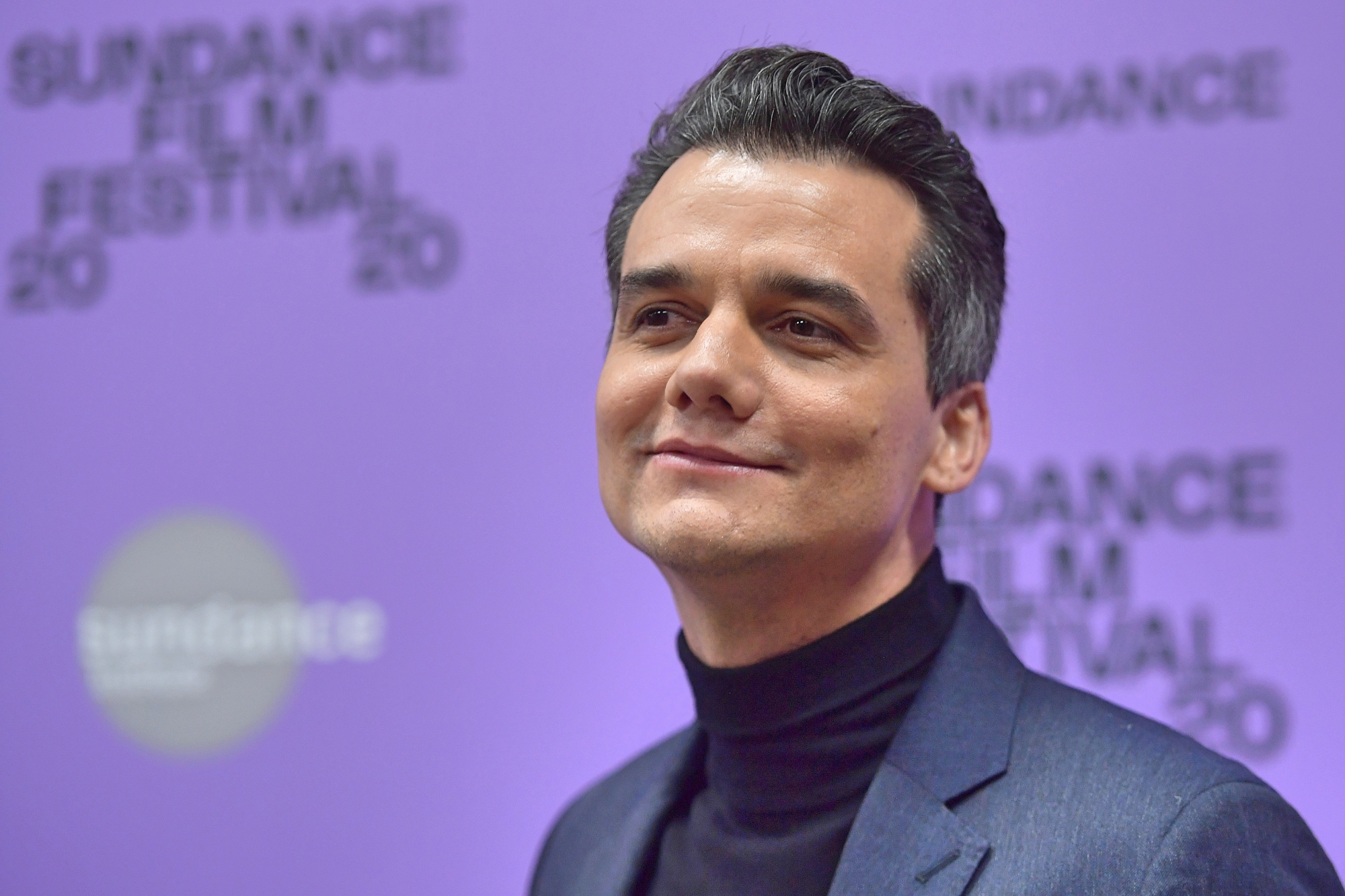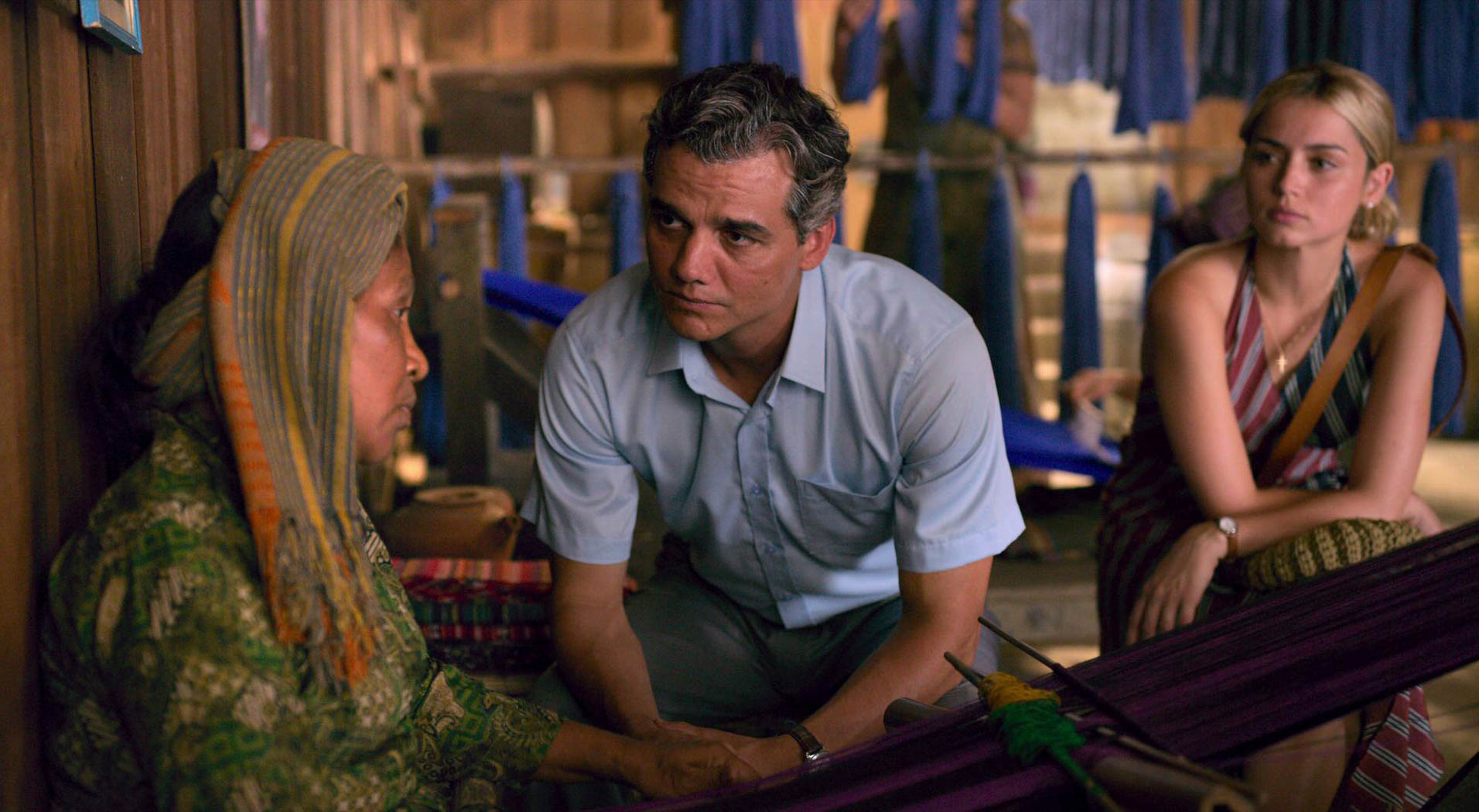
- Interviews
Sundance Interview: Wagner Moura, Back on Screen and Behind the Camera
Sergio, as well as being part of the International Jury. How has the experience been so far for you?
"Times New Roman",serif;color:black’>It’s been great. I’ve been here before twice with the second Elite Squad, and a film called The Father’s Chair. I love Sundance, and the films that I have been watching as a juror, it’s been a great experience. But Sergio is special because it’s a film that I produced and it’s part of sort of a more ambitious plan, which is to produce films about Latinos that don’t enforce the stereotypes in the United States. So I thought that Sergio was kind of the best first to do that. A Brazilian, a UN person, a human rights man. One of the things that really moves my life is my commitment to human lives and I am a UN Ambassador for the International Labor Organization and the fight against slave labor. So it made so much sense to make a film about him and I think that this is kind of perfect festival for this film. It’s not a big film but it’s not an indie film. The first time that we screened the film to an audience was to the volunteers. I think they chose the film they wanted to watch. And they chose mso-fareast-font-family:"Times New Roman"’>"Times New Roman",serif;color:black’>Sergio is not that normal in the way that he was supposed to be considering the man that he was. He was one of the most important UN officials in the history of the United Nations and people kind of know that there was this Brazilian that was killed in Iraq, so one of the reasons that I made the film was to bring awareness, especially in Brazil.
"Times New Roman",serif;color:black’>I have to say that I really think about Brazil before anything. More than that I think about Bahia, what my friends are going to think about the things that I do. Last year, I directed a film about this Brazilian revolutionary called Carlos Marighella. I also want to tell the history of when the Portuguese arrived in Brazil from the point of view of the Brazilians. This is something that never has been told. Our history has always been told through the point of view of the conquerors and afterward the same elite, that came from the same conquistadors. So I am very interested in retelling history in the way that I think is the most accurate way to tell. Sergio considered himself more of a UN guy than a Brazilian because he joined the UN when he was 21 and stayed there until he was killed. But he was a Brazilian and he played the Brazilian card when he needed it. He was very smart and pragmatic. But I really honestly think it’s very important for Brazil, especially in the moment we are in right now, to have examples, like him. Especially an example of a person who, when he was killed, was the High Commissioner for Human Rights.
"Times New Roman",serif;color:black’>It’s a very unique career, it’s very rare to see someone in the UN with that kind of path. When he graduated, he left Brazil because of the coup-d’état. And then he went to study at the Sorbonne. He graduated in philosophy. The first place he looked for a job was at the United Nations. So he started as a High Commissioner for Refugees, which was something that was very important, that was the idea that gave him, that the UN official should be in the field because he was always being sent to do technical things like providing shelter or food to refugees. So that was what made his mindset as a field guy. "Times New Roman",serif;color:black’>

Con Ana de Armas en una escena de Sergio.
netflix
Ana de Armas. How was it falling in love with her on-screen?
"Times New Roman",serif;color:black’>She was amazing. Honestly, Ana de Armas is one of the best actors I have ever worked with. She’s a great actress. She’s led by her intuition, she doesn’t overthink things, she’s great to hang out with, she’s a great person, a great colleague to have a beer with and have a conversation with after the shooting. I had a great time. And right after Sergio, we did another film together, The Wasp Network."Times New Roman",serif;color:black’>Of course. I thought it was perfect for her. She absolutely deserves the recognition that she’s having and she’s about to have even more because she just played Marilyn Monroe. And for us Latinos, having a Cuban actress playing the most iconic figure in Hollywood is a big deal. It opens a door for all of us.
Narcos you achieved something very difficult, which was to get a Golden Globe nomination to put a show, with a lot of dialogue in Spanish, on the map. But I have the feeling that you didn’t want to rush anything and you wanted to hold until you had the right project.
"Times New Roman",serif;color:black’>That’s a very interesting question. The natural thing to do was to take advantage of the momentum and try to do things. But I’m 43 already, I have been working as an actor since I was 15. I am being very, very honest with you, the thing with Sergio and the fact that this is film that I produced and that I wanted to do and there was political thinking behind it, this is what really interests me. I am not saying I am not interested in doing Hollywood projects, but I receive a lot of things that come to me that maybe through the eyes of another actor would be like oh my God. I wanted to work with Olivier Assayas and I wanted to do this film that I produced. And right after Narcos what I wanted to do was to direct my film. So maybe through the eyes of some people I kind of should be doing something else, but I couldn’t be happier with what I did. And I really like to look at my path and go like But I feel that I wouldn’t be happy if I was doing things that I thought were silly or just because I am working with a big movie star, because it’s a big project, because it’s a lot of money. I would actually be very miserable if I had to do something like that."Times New Roman",serif;color:black’>Yes. Many times. And Narcos was a big deal at the time. When I first did And I am proud I took my time like you said, to really think about what I wanted to do with my career. And I think that there was also this Latino, this political thing in terms of we are very sub-represented. Not only the way, the number of characters that we do, but the way we are displayed, the way Latinos are shown in films. And I think that we can make it, when I see Diego playing in Star Wars with his Mexican accent, I think this is a big deal, this is the kind of thing that makes sense because we are not supposed to be in this little box. And I say this after playing in Narcos the violent Latin guy. I think we have to go beyond that and play all types of characters and with different directors in all sorts of different projects. So I am very satisfied in that field, of doing my thing.
"Times New Roman",serif;color:black’>Not that hard. I really needed to do it, I spent two years with a body that wasn’t mine, conjuring energy where it was kind of heavy. So I was ready when we wrapped. I went on a vegan diet just to get rid of everything and I was ready to go back to my former shape, it wasn’t hard at all. Of course, physically, the older you get, it’s harder to lose weight. But it’s not a big deal.
"Times New Roman",serif;color:black’>It changed me a lot. I honestly think acting is way more difficult than directing. I think that directing is pretty much about making people see the same thing that you are seeing and inspire them and bring them the best, make people excited and do the best that they can. Of course, you have to have a vision but it’s more like the talents of other people and make them do it with you. But one thing that really moved me when I directed my film is, I really realized how important an actor is, especially your main guy, and how important and natural that is for a filmmaker, the amount of things that those actors were giving to me and I could see how difficult that is because not many people can see how an actor exposes their intimacy when they are doing something, it’s acting. And I saw how difficult that was, and sometimes I was like I wouldn’t like to be there. It’s so painful sometimes.

